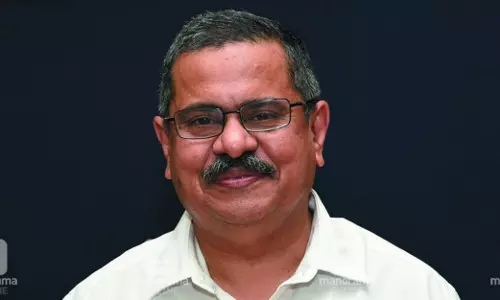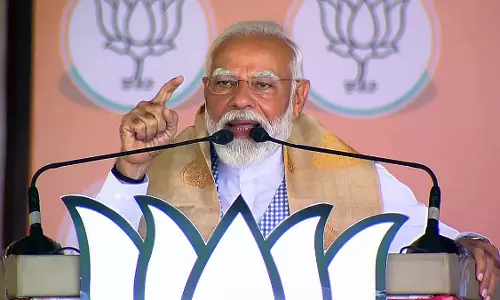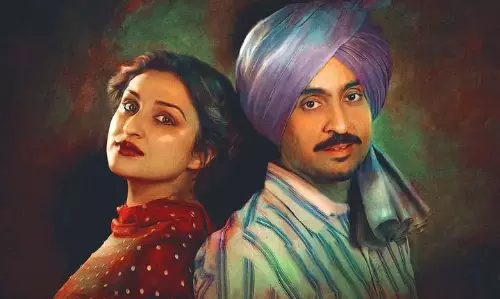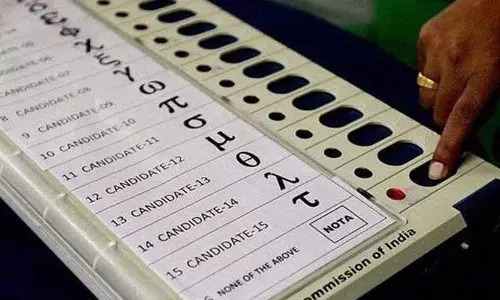
Looking through the mirror of justice
text_fieldsThe forceful comments made by Supreme Court Justice Deepak Gupta against abuse of sedition law to muzzle dissent and criticism, deserve urgent attention of the entire present-day India. He said that for the last few years sedition law has been used as a tool to arrest and hold people in detention, and if things continued so, Section 124A of the Indian Penal Code (IPC) will have to be revisited.
At a lawyers' workshop held at the Pralin Public Charitable Trust in Ahmedabad, Gujarat, on Saturday, Justice Gupta reminded that freedom of expression being a constitutional right must get primacy over laws of sedition. He said "There are only shouting and slanging matches. Unfortunately, the common refrain is either you agree with me or you are my enemy, or worse, an enemy of the nation, an anti-nationalist' and added, "as long as a person does not break the law or encourage strife, he has a right to differ from every other citizen and those in power and propagate what he believes is his belief".
When the country is soaring scientific heights to touch the golden moon of progress, in parallel there is also a propensity among a class of people to tie down the population to absurd superstitions and unhealthy practices and then, when voices are raised against them, to raise the weapon of sedition laws against such moves. Justice Gupta's criticisms gives a blow to this penchant. As a matter of fact, even those who come to power with huge majority, do not win more than half of the votes polled. Although, as the first past the post parties they are entitled to rule, they cannot claim to be the voice of the entire population. Even a minority has the right to express their views. Government is an institution, not an individual and criticism of the individual cannot be equated with being anti-national. Justice Gupta also recalled the dark days during the Emergency when an attempt was made by one party president to equate his leader with the country and that attempt miserably failed. Loyalty and love towards an individual or the country cannot be imposed through law. He recounted what Gandhiji had said that if any one disapproves of anything, he is entitled to the right to express it in a civilised manner and without inciting violence. Gupta expressed the view that both the judiciary and legislature should be subjected to all kinds of review scrutiny criticism.
Law of Sedition, under Section 124 A of IPC was introduced by the British to suppress the Wahabi agitation against colonial rule in 1870. It provides that a case can be made out if the words – spoken or written - had the tendency to create disorder or disturbance of public peace by resort to violence against a lawful government, and will attract three years to life term in jail and fine. This law was invoked against those like 'Bangobasi' editor Jogendra Chandra Bose, Bala Gangadhara Tilak and even Mahatma Gandhi. Post-independence, although several attempts were made to repeal the law, the architects of the nation then reached a consensus that it could be addressed through constitutional principles. That decision, lacking precision and definitess, later became a wepon for rulers who decided to impose autocratic rule. It reached a deplorable stage when governments of independent India used this law to wage war against its own people. Although courts, right from high courts to the Supreme Court, had opined at different stages that this law that harms the fundamental right of free speech is not tenable and it has to be amended in line with the constitution, what happened in actual practice was the contrary. Instead of revisiting the law, more stringent legislations in line with the same provisions, such as NSA (National Security Act) and UAPA Unlawful Activities Prevention Act) were introduced. The Congress, which had initiated many such anti-people laws, however declared during the last election campaign that once voted to power it would repeal the draconian law. But on the other hand, the position of BJP was that if returned to power, it would tighten the law. It has made a beginning in that direction through the UAPA amendment. Things are moving to a stage of abusing sedition law to silence those who criticise the government and its leadership. Since BJP came to power in Assam in 2016, 251 seidition cases have been filed. In Maharashtra, eight civil rights activists were put in jail and UAPA slapped against them, in connection with the Bhima-Koregao protests. Kanhaiya Kumar, former student leader in JNU, and Shahla Rashid, leader of Jammu-Kashmir's People's Front are just two among its new victims.
Now a judge of the highest court has held a mirror upto the increasing tendency to abuse a law of colonial times to consolidate dictatorship and to kill dissent. Attempts to correct the patent distortions coming out through such revelations and to prove our independence and democracy before the world, brook no further delay.

















